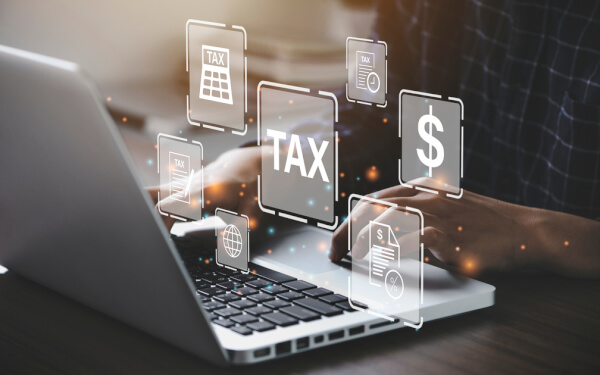GST Exemption List Singapore: Complete Business Guide for 2025
Complete guide to Singapore's GST exemption list. Learn which supplies are exempt, out-of-scope, or zero-rated and how it affects business compliance.

If you have a business in Singapore you may need to register for GST (goods and services tax) - or you might choose to register voluntarily if you’re eligible but not required to register. This guide walks through the basics of GST in Singapore including what it is, which businesses are required to register and which may choose to, and how to register GST for a company in Singapore.
We’ll also touch on Wise Business as a financial solution to help you streamline your international business transactions, making them simple, seamless and cost-effective.
This guide is for information only - if you’re unsure about what taxes you may need to pay for your Singapore business, take professional advice to make sure you comply with the law.
| Table of contents |
|---|
Goods and Services Tax (GST) in Singapore is a broad consumption tax¹, which is levied on imported goods, and goods and services supplied in Singapore. This tax is known as value added tax in some other countries.
GST in Singapore is set at 9% at present², a rise from 7% in 2022.
This rise in rate was announced back in 2022, and the funds generated are used to fund healthcare and senior care in Singapore. Some goods and services are exempt from GST, and goods which are exported out of Singapore are also exempt or zero rated.
Not all businesses in Singapore need to register for GST³.
There are some reasons when this would be mandatory - based on company turnover for example - and some companies also choose to register voluntarily. There are also special registration rules for some companies which work with overseas suppliers, and importers of low value goods.
This may mean that mandatory registration applies, even if your business isn’t at the registration threshold for turnover just yet.
If a business is GST registered - either through mandatory registration or voluntary registration - it will need to charge GST on all taxable supplies, and pass the funds collected to IRAS within a month from the end of the accounting period. You can also claim GST incurred on business purchases including imports, and expenses. This is offset against any payment you need to make to IRAS.
Registering for GST, and filing and paying any GST collected, is all done electronically for convenience.
No. Not all Singapore registered companies need to register for GST. Whether or not you need to register is usually dictated by your business turnover and a few other important eligibility considerations.
Singapore businesses must register for GST if their turnover is 1 million SGD or more. You may also need to register through the Reverse Charge and Overseas Vendor Registration regimes. If you fail to register for GST and are obligated to do so, the GST registration date will be back dated to take into account when registration was required.
Some businesses which are not required to register for GST still choose to do so - but as there are pros and cons to this, IRAS recommends you take advice on the benefits and drawbacks before you choose this step⁴.
Not all businesses are eligible to register for GST, even through the voluntary scheme. Once registered your business can claim the GST incurred on your purchases, but there are a few important steps to complete before you sign up, including an elearning course and getting registered for PayNow. You may also have to provide a guarantee, and registration is for a minimum of 2 years. During this time you must file GST even if there’s a zero balance, which can increase your administration time and costs if you’re not sure whether or not you’ll be selling GST eligible goods or services.
| 💡Pro tip: One of the obligations for voluntary GST registrants is that you have to use GIRO for payment and refund of GST - meaning your business bank account needs to be Giro-enabled. If you don’t have a Giro-enabled account, take a quick look at the best corporate bank accounts in Singapore to get everything set up in good time. |
|---|
You might find you’re required by law to register for GST through the reverse charges and overseas vendor⁵ route. This rule primarily concerns companies that deal with overseas suppliers, or that import low-value products. It can also be relevant for overseas suppliers or local or overseas electronic marketplace operators.
There are 2 scenarios in which this may apply:
If you think that you may need to register your Singapore business for GST under either of these rules, you should take advice or contact IRAS directly to make sure you’re fulfilling all of your obligations here.
If you handle overseas suppliers or are an overseas supplier yourself, you likely will need to transact in foreign currencies frequently with your suppliers, contractors and customers. Managing money across currencies can be complex - and expensive.
To keep the costs of currency conversion down for your company, check out Wise Business, which offers 40+ supported currencies with mid-market exchange rates, low fees and easy ways to pay and get paid all around the world.
| Take your business global with Wise Business | |
|---|---|
| 🚀 Always Get the Mid-Market Rate No more hidden markup fees or foreign transaction fees - We give you the exact mid-market exchange rate + a transparent, low conversion fee. | 🌍 Global Multi-Currency Account that Feels Local Send money to over 70 countries and manage multiple currencies without breaking a sweat. Get account details to receive payments in GBP, EUR, AUD and more currencies just like a local |
| 💸 Pay Once, Unlock Forever Forget about monthly charges or annual fees. With Wise Business, you can unlock the full suite of features for a one-time fee of 99 SGD | 💼 Batch Payments Brilliance Too many invoices? Power through up to 1,000 invoices in just one click with our Batch Payments Tool |
| 💳 Command Your Cash Flow with Wise Business Cards Give your team their own corporate debit cards to keep expenses clean and easy to monitor. Need more control? Approve payments, set spending limits, and freeze your card if you've lost it. | 📄 Free Invoicing Tool Level up your invoicing game with our free tool. Create and send professional invoices that not only get noticed but get paid. |
Registering for GST might be a requirement if your company has a taxable turnover of 1 million SGD or above, or based on your business activities.
However, even without mandatory requirements, some Singapore business owners choose to register for GST. IRAS advises that voluntary registration should only be done after careful consideration - here are a few pros and cons to think about if you’re considering it.
| Pros of GST registration | Cons of GST registration |
|---|---|
| ✅Lots of government support to understand your obligations and duties ✅Once registered your business can claim the GST incurred on your purchases ✅The whole process for registering, filing and paying is digital for convenience ✅You can authorise a tax agent to submit your filings on your behalf if you want to ✅Registering voluntarily before your company reaches the turnover threshold means you don’t need to register in a hurry later | ❌Not all businesses are eligible to register for GST, even through the voluntary scheme ❌You’ll need to complete an elearning course and register for InvoiceNow ❌You need a Giro enabled business account ❌You may need to provide a guarantee ❌Registration is for a minimum of 2 years |
If you’ve hit the GST turnover threshold and need to register - or if after consideration you’ve decided to register voluntarily - you’ll be glad to learn that the process for registration is pretty simple and all done online.
Here’s an overview of the steps you’ll need to follow to register your business for GST in Singapore⁶:
Most applications are processed in 10 days, with almost all being completed in 30 days.
Once registration is completed you’re informed of your GST number and the date it becomes effective from, and can start charging GST for your business. You must not charge for GST before the effective date, which is usually within 2 weeks of getting your letter for voluntary registration.
If you’re late applying for GST registration, the requirement to charge GST is backdated to the date your business became required to register.
| 🔍 It’s important to note that GST registered businesses in Singapore will need to prepare for InvoiceNow. This is mandatory on registration for companies which apply for GST registration voluntarily, and is being rolled out to all businesses over time. |
|---|
You can manage your GST fairly easily yourself if you want to, or you can have an agent manage the filing process on your behalf. There’s a fee for using an agent so make sure you've weighed up the costs and benefits if you decide to go down this route. The basic outline to the process to file GST electronically in Singapore is as follows⁸:
Ultimately the amount you need to pay IRAS - or the amount you’re entitled to as a refund - is calculated based on the GST you’ve charged, and the GST you’ve paid to other businesses on eligible purchases.
You’ll file and pay GST quarterly. The due dates for payment are a bit different depending on whether you have Giro set up or not. Without Giro you must file and pay by 30th April, 31st July, 31st October and 31st January annually. If you have Giro you’re given an extra couple of weeks after the filing due date to make the payment to IRAS.
Registering for GST as a business in Singapore is an important step in ensuring compliance with local tax regulations. However, the process can be somewhat involved, requiring careful preparation and understanding of the necessary documentation and requirements. Remember - not all companies need to register, and there are pros and cons to registering voluntarily which you’ll need to consider.
| 💡Just as you need the right guidance to manage your GST registration effectively, having the right tools to handle your business finances is equally important. This is where Wise Business can make a substantial difference and help you to grow your company while focusing on your customers instead of your costs. |
|---|
Get Started with Wise Business today
Sources checked on: 18th March 2025
*Please see terms of use and product availability for your region or visit Wise fees and pricing for the most up to date pricing and fee information.
This publication is provided for general information purposes and does not constitute legal, tax or other professional advice from Wise Payments Limited or its subsidiaries and its affiliates, and it is not intended as a substitute for obtaining advice from a financial advisor or any other professional.
We make no representations, warranties or guarantees, whether expressed or implied, that the content in the publication is accurate, complete or up to date.

Complete guide to Singapore's GST exemption list. Learn which supplies are exempt, out-of-scope, or zero-rated and how it affects business compliance.

A full review of the Sleek business account for Singapore companies including its features, fees, and benefits.

Discover what Zero-Rated GST is, how 0% GST can help your Singapore business save on taxes, how to qualify for it and more.

Compare the best startup bank and non-bank solutions in Singapore. Find the right banking solution for your growing business with our complete guide.

Discover the most profitable small business ideas in Singapore for 2025. From e-commerce to consulting, find the perfect market for your new business today.

Learn what Corppass Singapore is, how roles work, and the Singpass/SFA login. Step-by-step setup and key services for IRAS, ACRA, MOM, CPF.